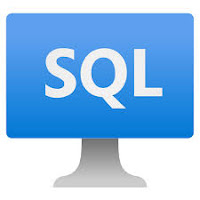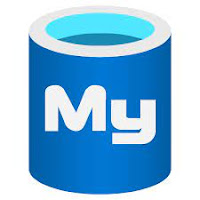In this article, we are going to see all of the Relational Data Services that are available in Azure
Infrastructure as a service (IaaS) - SQL Server on VMs
Platform as a Service (PaaS) - Azure SQL Database , Azure SQL Managed
Instance, Azure Database for MySQL, PostgreSQL & MariaDB.For Hybrid On-Premise extension - SQL Stretch Database
For IoT - Azure SQL Edge
SQL Server on Azure VM

With SQL Server on Azure VM, on-premise SQL workloads can be easily shifted to Azure while maintaining complete SQL Server compatibility and operating system-level access.
Key Features
- Infrastructure as Service (IaaS) with a complete set of features.
- Requires no code changes except the connection string.
- Full control over the server in the cloud as similar to on-premise server.
- Leverage existing expertise in SQL Server and continue working the same way as on the on-premise server.
Azure SQL Database

Azure SQL Database is the most preferred solution for normal relational and transactional databases. Azure provides the option to create a database server and deploy our databases to the cloud. A SQL Database server is a logical construct that acts as a central administrative point for multiple single or pooled databases, logins, firewall rules, auditing rules, threat detection policies, and failover groups. Azure SQL Database is available with several options: Single Database, Elastic Pool, and Managed Instance.
Azure SQL Managed Instance

Azure SQL Database restricts some of the administrative features available in SQL Server. Within Azure SQL Managed Instance, we have full control over the instance, as much as you would for an on-premises server. We can deploy as many as databases we want in the server.
With the support of other Azure Services, managed instance automates backups, software updates, monitoring etc., it is always up-to-date.
Key Features
- Easy lift and shift - Fully-fledged SQL instance with 100%
compatibility with on-premise instance. - Fully Managed PaaS service with a complete set of features.
- Enhanced Security and isolation with VNet and a private IP address.
Azure Database for MySQL
MySQL is the leading open source relational database for Linux, Apache, MySQL, and PHP (LAMP) stack apps.
Azure Database for MySQL based on the MySQL free community edition offers high availability and elastic scaling to open-source mobile and web apps or migrate MySQL workloads to the cloud.
Key Features
- Built-in high availability features
- Enhanced security with compliance
- Automatic backups and point-in-time restore for up to 35 days
- Easy scaling option
- Pay-as-you-go pricing - only pay for what you use.
- Offers integration with Azure App Services and Azure Kubernate Services for simplified development
Azure Database for PostgreSQL
Azure PostgreSQL helps in building scalable, secure, and fully managed enterprise-ready apps on open-source PostgreSQL, scale out single-node PostgreSQL with high performance, or migrate PostgreSQL and Oracle workloads to the cloud.
Key Features
- Offers extensions which MySQL does not have
- PostgreSQL Extensions provides additional custom data types, functions, JSONB, full text-search, index types, language-types, caching, geospatial support etc.,
- Supports geometric data such as lines, circles and polygons
- Supports both relational and non-relational data
- Provides high performance horizontal scaling using Hyperscale (Citus)
Similarities with MySQL
- Both are Open Source, and support relational database and fully managed services.
- Makes it easier to lift and shift your applications to Azure
- No need to convert your datastore to SQL Server or SQL Database
- Use the same tools as SQL Database for scaling and monitoring
- Intelligent Performance Recommendations
- Enhanced Security Capabilities
Azure Maria DB
MariaDB is a newer database management system, created by the original developers of MySQL.
Key Features
- Built-in support for temporal data. A table can hold several versions of data, enabling an application to query the data as it appeared at some point in the past
- Offers compatibility with Oracle Database
Azure MariaDB based on free community edition offers high availability and elastic scaling to open-source mobile and web apps with a managed community MariaDB database service
Key Features of Azure MariaDB
- Relational Database as a fully managed service
- High Availability
- Scaling as needed within seconds
- Automatic backups and point-in-time restore for up to 35 days
- Support for many languages and frameworks
- Enhanced Security Capabilities with Azure IP Advantage
Hybrid Database using SQL Server Stretch DB
Scenarios where we choose to go for the hybrid option
- When you have an existing database that is running out of space
- When you have an on premise server with large database running lot of applications
- To retain existing Traditional Architecture of Legacy system. The hardest option out of the rest.
- For these scenarios, upgrading to a new server might be difficult and painful. One option would be to extend “cool” data to the cloud, so we can extend the life of the on premise server.
Using Stretch Database, data can be split between on-premises storage and cloud storage. We can push the cold, historical data to the cloud (which will be accessed rarely) and warm active data can be retained on-premises to boost the performance.
Azure SQL Edge
Azure SQL Edge is an optimized relational database engine that is specially designed for IoT and IoT Edge deployments.
Key Features
- Able to create excellent data storage and processing layer for different IoT applications.
- Since it is built on top of the SQL Server database engine, we can use the same T-SQL programming in SQL Server
- Provides the most demanding machine learning and artificial intelligence capabilities
- Its built-in streaming capability helps you with complex event processing and realtime analytics
Conclusion
Thanks for reading this post! This time, we covered the Relational data store related services that are available in Azure. Stay tuned to learn more about other types of data stores in Azure, as this is just the beginning.
Happy learning!







This is a really authentic and informative blog. Share more posts like this.
ReplyDeleteData Analytics Courses in Chennai
Big Data Analytics Courses in Chennai
Hadoop Admin Training in Chennai
Great Post with valuable information.Thank you. Share more updates.
ReplyDeleteBilingual language
Second language